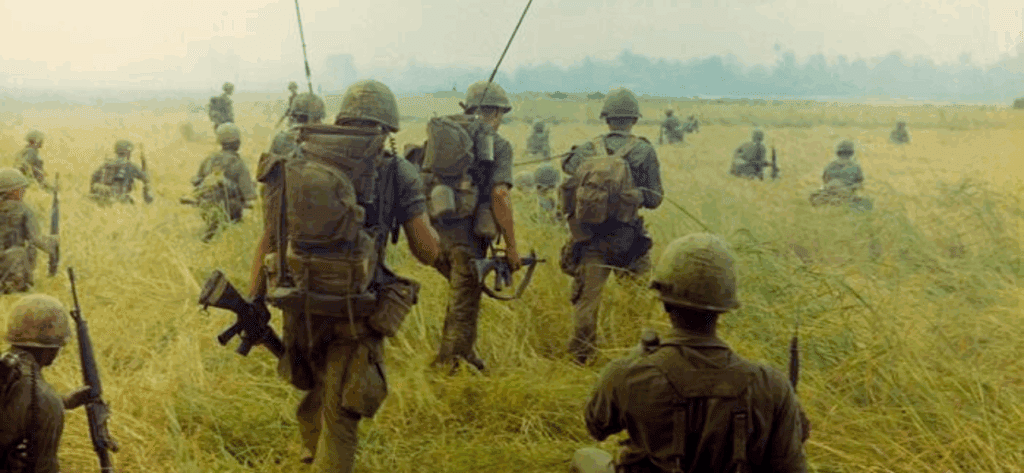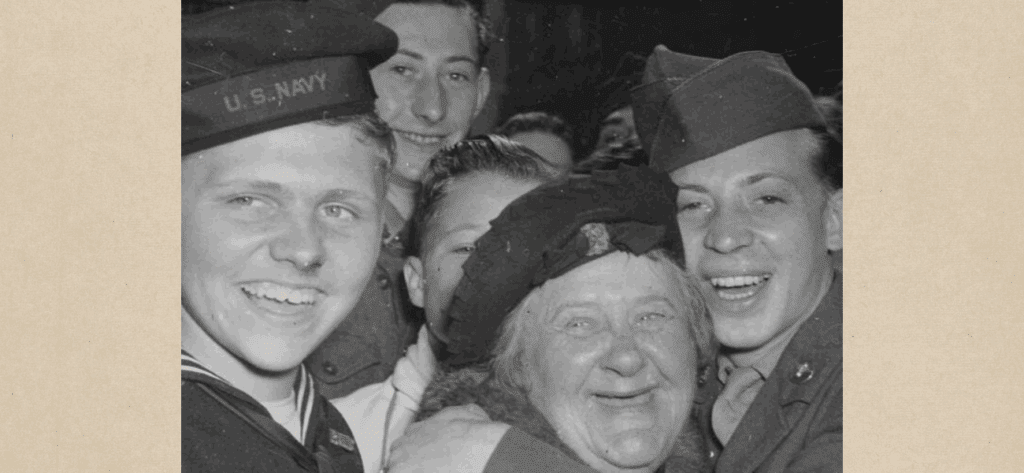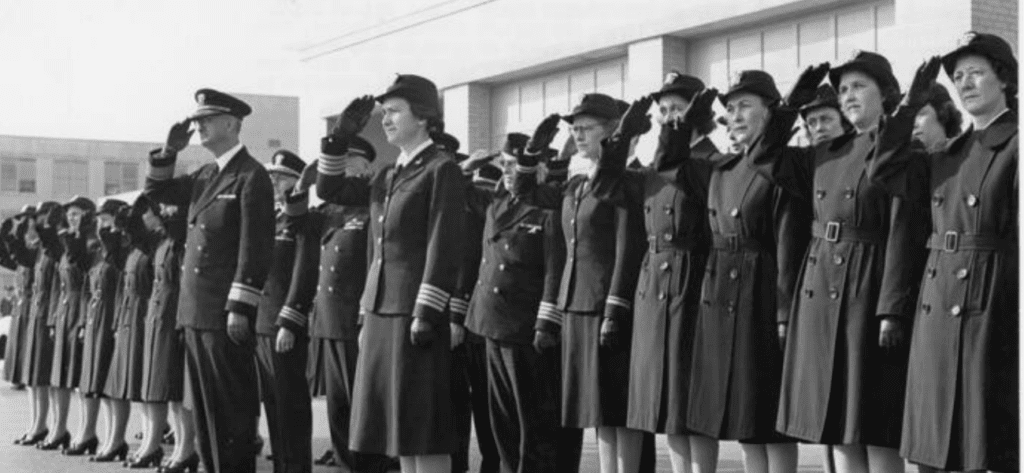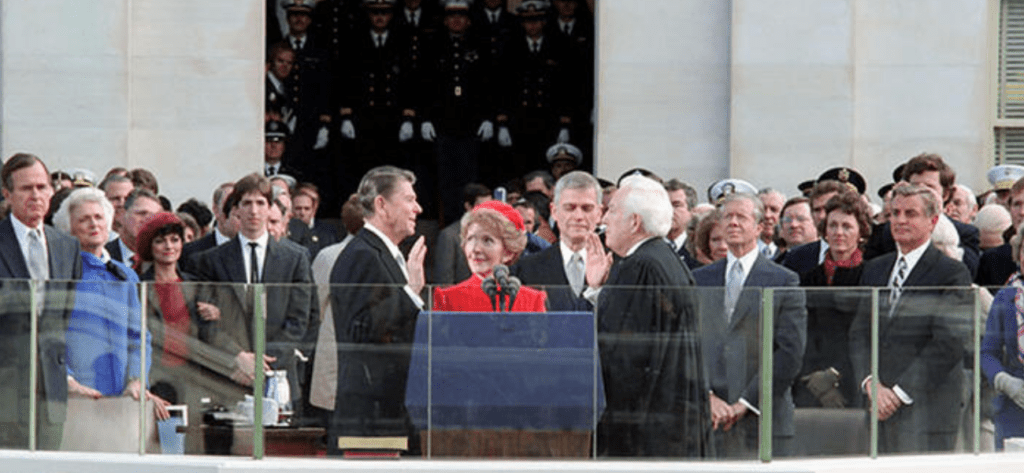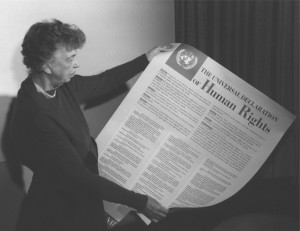 “Where, after all, do universal rights begin? In small places, close to home…Unless these rights have meaning there, they have little meaning anywhere.”
“Where, after all, do universal rights begin? In small places, close to home…Unless these rights have meaning there, they have little meaning anywhere.”
Eleanor Roosevelt was First Lady to President Franklin Roosevelt. She also served as the United States Delegate to the United Nations General Assembly from 1945 to 1952 with President Truman.
Roosevelt regarded her role in drafting and securing adoption of the Universal Declaration of Human Rights as her greatest achievement.
Eleanor Roosevelt and United Nations Universal Declaration of Human Rights, Lake Success, NY, 1949.
Franklin D. Roosevelt Presidential Library and Museum
This document is being featured in conjunction with the National Archives’ National Conversation on Women’s Rights and Gender Equality.
The “National Conversation on Rights and Justice” is presented in part by AT&T, Ford Foundation, Seedlings Foundation, Carnegie Corporation of New York, and the National Archives Foundation.
Special thanks to Perkins Coie for their support in this event in New York City.
